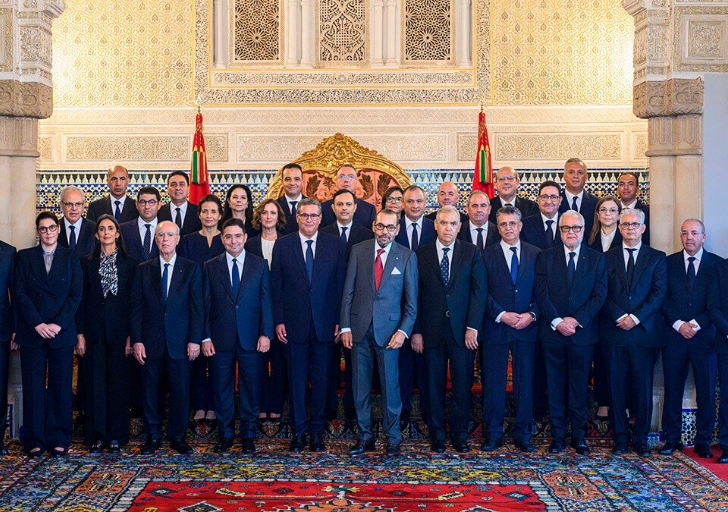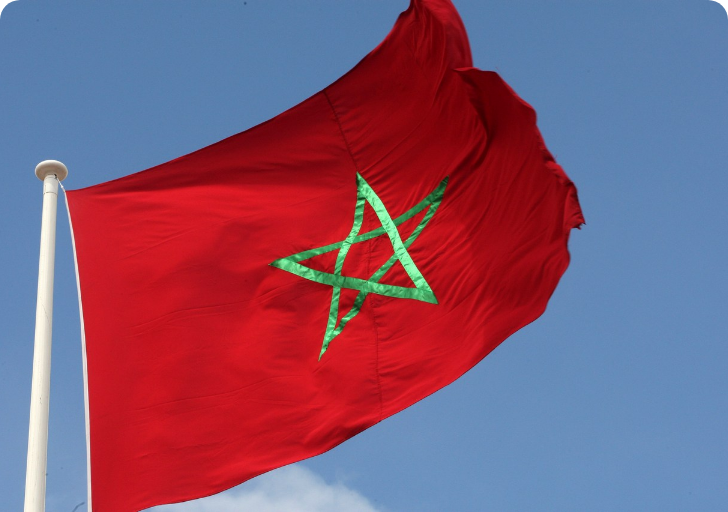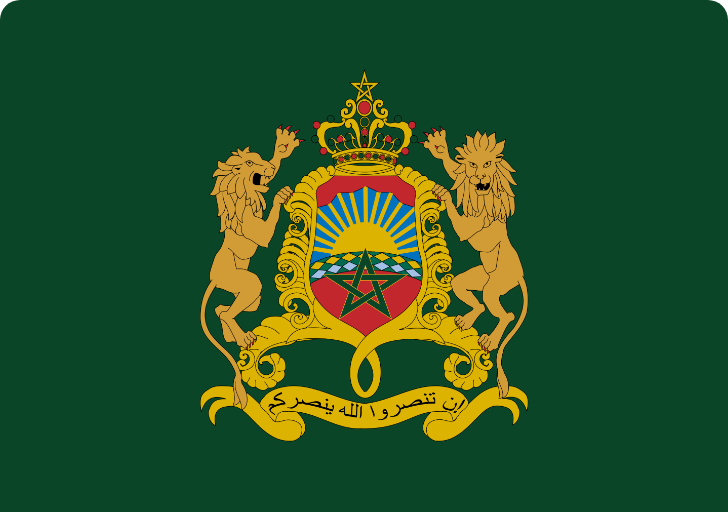HM the King Sends Speech to AU Extraordinary Summit on Continental Free Trade Area, Full Text
HM King Mohammed VI sent a speech to the Extraordinary Summit of heads of state and government of the African Union on the Continental Free Trade Area, held Wednesday in Kigali.
Here follows the full text of the speech read out by head of government Saâd Eddine El Othmani:
Your Excellency Mr. Paul Kagame, President of the African Union,
Distinguished Heads of State and Government,
Your Excellency, Mr. Moussa Faki Mahamat, Chairperson of the AU Commission,
Your Excellencies,
Ladies and Gentlemen,
First of all, I should like to express my sincere thanks to our distinguished host, His Excellency Mr. Paul Kagame, President of the African Union, for his efforts to ensure this Extraordinary Summit is a success.
I also wish to take this opportunity to praise the significant efforts made under his stewardship to reform our Organization and make sure it is capable of rising to current and future challenges. In this regard, I should like to tell him, once again, that he can count on the full support of the Kingdom of Morocco.
I also wish to thank His Excellency Mr. Moussa Faki Mahamat, Chairperson of the AU Commission, for his resolve to breathe new life into the work of the Commission and to support the reform momentum within the African Union.
This is a defining moment in history. The creation of the largest free trade area in the world, with the youngest population on the planet, is a landmark event which attests to our shared determination to build an Africa for the future.
This initiative brings in new prospects, practices and solidarity mechanisms. A continental free trade area stimulates capacities and enhances knowledge and insight. More than anything else, however, it fulfils the desire and ambition of our young people to build a strong, integrated Africa.
Your Excellencies,
Ladies and Gentlemen,
At all levels and in all sectors, Africa is on the move today. It abounds in natural resources and its human potential is immense. This is something I noticed clearly during my numerous visits to various parts of our Continent.
I also realized that the emergence of a united, ambitious African community was urgently needed. In this respect, Morocco's return to its institutional family is a strong indication not only of my country’s desire for unity, but also of its unwavering commitment to cohesion, concord, territorial integrity and African solidarity.
The launching, today, of the African Continental Free Trade Area is a critical step towards the achievement of multifaceted development in Africa. AfCFTA is an initiative by Africa, for Africa.
This initiative expands and builds on the countless measures taken by our respective countries to promote intra-African trade. It will boost investment, stimulate economic growth, enhance continental interconnectivity and inject fresh momentum into African integration. This is a pragmatic step towards an integrated, prosperous Africa which is attuned to international realities.
The 1980 Lagos Plan of Action for the Economic Development of Africa and the 1991 Abuja Treaty established Regional Economic Communities which have served as the bedrock of African integration. Today, the path towards the actual establishment of a continental free trade area is virtually mapped out thanks to the undeniable progress achieved in this area by those Communities, some of which are already considering customs union protocols.
Your Excellencies,
Ladies and Gentlemen,
In Morocco, experience has taught us that the open market economy and the establishment of free trade areas, with partners from the North and the South alike, often give rise to legitimate concerns and create certain challenges which must be tackled through appropriate mechanisms.
Once those concerns and challenges are addressed, it becomes clear that economic openness has many benefits and translates into gains for the national economy, contributing to the emergence of new value chains.
To impede such a dynamic, at continental level, would delay Africa’s rise and hamper its competitiveness and development.
In this respect, Morocco believes in a kind of co-development which is based on intra-African cooperation, economic complementarity, active solidarity and the pooling of resources and efforts. These are prerequisites for any inclusive growth and for sustainable human development on the Continent. The goal, ultimately, is to transform Africa into a dynamic force and to make it a major player on the international scene for the benefit of our populations.
To promote progress in Africa and boost intra-African trade, we need to build on the technological development the world has witnessed and to turn our intra-African trade deficit into opportunities for the development of new digital technologies.
Africa is on its way to becoming a global digital laboratory. Spurred on by young people’s ingenuity, creativity and audacity, digital technology is changing the face of our Continent. We owe this digital quantum leap to young startups operating in the fields of finance, telecommunications, industry and agribusiness, to name but a few. Often, those behind this innovative process are young people from low-income segments of the population. Our young people ought, therefore, to take center stage in our public policies.
Your Excellencies,
Ladies and Gentlemen,
We are gathered here to shape our Continent’s economic and commercial future. Today, more than ever, we need to make sure African markets are sustainably interconnected.
The African Continental Free Trade Area is a key instrument for the promotion of this new economic development paradigm centered on innovation, diversification and exchange rooted in solidarity. Africa must come together with a view to achieving the ultimate goal of building a prosperous African economy based on inclusive growth and sustainable development - an economy that supports and stimulates entrepreneurship and the creation of wealth.
It was precisely because we sought to respond to those legitimate aspirations that it was possible, through various rounds of negotiation, to develop the appropriate legal framework – namely the African Continental Free Trade Area.
I should like, in this regard, to commend His Excellency Mr. Issoufou Mahamadou, President of the Republic of Niger, on his determined action, leadership and catalytic role in the negotiation process. This will contribute to the efficient implementation of the free trade area.
The upcoming free trade area is no longer a fantasy or a mere project: the results achieved were arrived at in a spirit of compromise; not only are they balanced, but they also reflect the expectations and concerns of all parties. Thanks to the enthusiasm and dynamism which characterized the rounds of negotiation, we have been able to consider free trade in 90 per cent of goods.
Through this initial tangible achievement, all the States involved are showing their desire to work towards an opening up and expansion of markets, while making sure the particularities of domestic economies are respected, especially the protection of infant industries and the economic activities involving vulnerable populations.
We need to build on that same spirit when conducting future negotiations on equally important issues, such as those relating to fair competition, compliance with intellectual property rules and the promotion of investment.
Only then would we give Africa a voice in trade issues.
Your Excellencies,
Ladies and Gentlemen,
We are in the process of shaping tomorrow’s Africa - the one we shall bequeath to our children. We are building it on solid economic foundations in the hope that our Continent’s tremendous resources may benefit African peoples, first and foremost.
To shape the Africa of the future - one that takes back its destiny into its own hands - we have had to go through countless stages and, to be sure, many others still lie ahead. We must see the whole process through in order to make sure that our economic development no longer hinges, in any way, on external players or considerations.
Thank you.
MAP 21 March 2018







